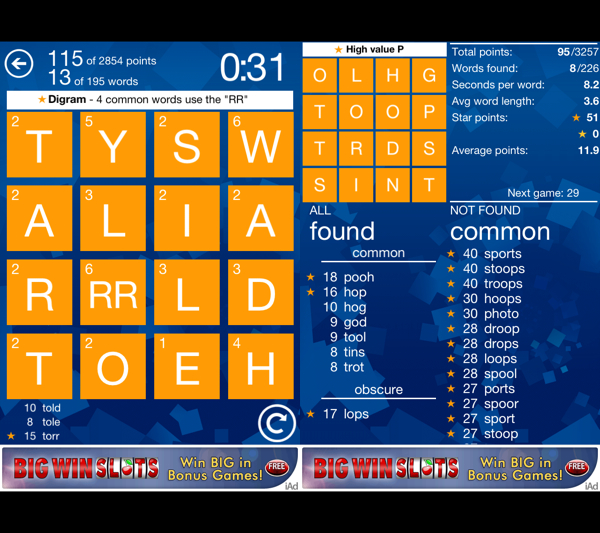


Since they were English words, they are likely to make a lot of combinations with other words since they are arranged together on the board. Now if you look at the final board, since the algorithm had especially added a few words, they are bound to be there. So after adding NUN and ZOO, the last space is filled with P:ĭone. Fill any single spaces with random characters. For example, after DINE is added:Ĥ) Iterate until you can no longer find 2 consecutive empty spaces. based on empty spaces) and begins with that letter. Pick an adjoining letter and find a word from the dictionary that can meet the length (i.e. Let's say the word was BORDER:Ģ) Find 2-3 consecutive empty spaces. In this case, I am more likely to take a set of words and continue to arrange them on board in the remaining spots until some criteria is met, and then fill the rest randomly.įor example, I'll pick a dictionary with the relatively "simple" words and create my word DB so that I can efficiently look up a random word based on two criteria: 1) How many letters do I want in a word, and 2) Which letter should the word begin with.ġ) Pick a word from dictionary that's either 6 or 7 chars long. Sometimes, it is simpler to "cheat" a little bit and start from the answer.


 0 kommentar(er)
0 kommentar(er)
